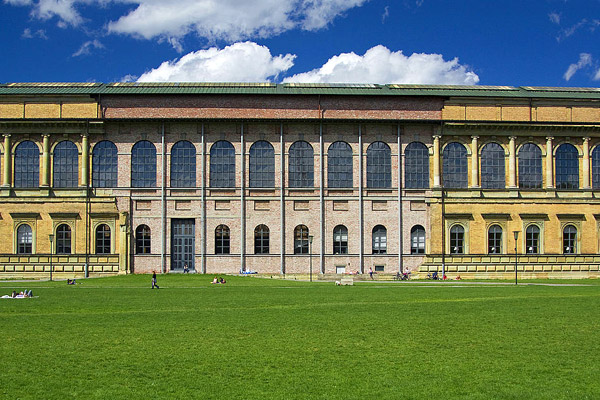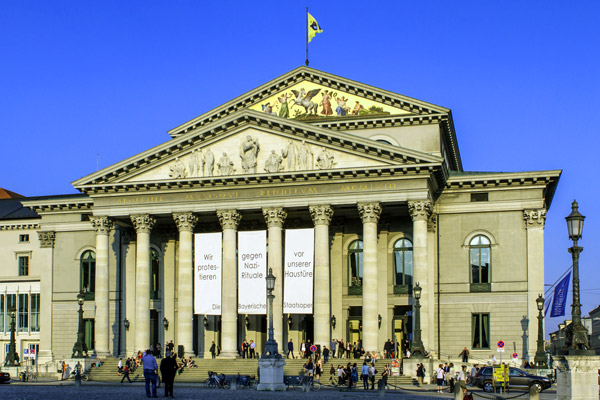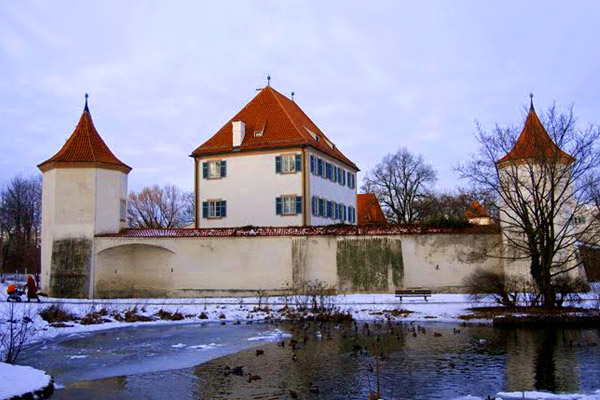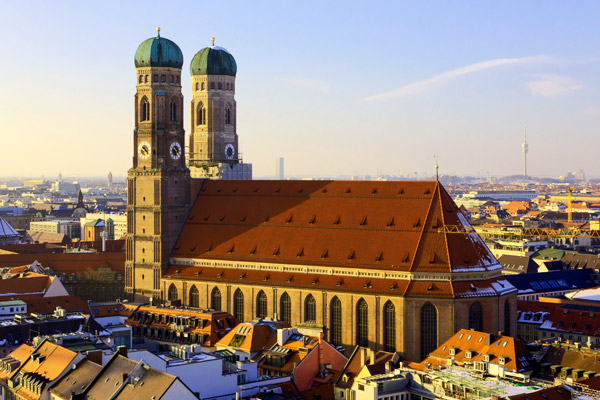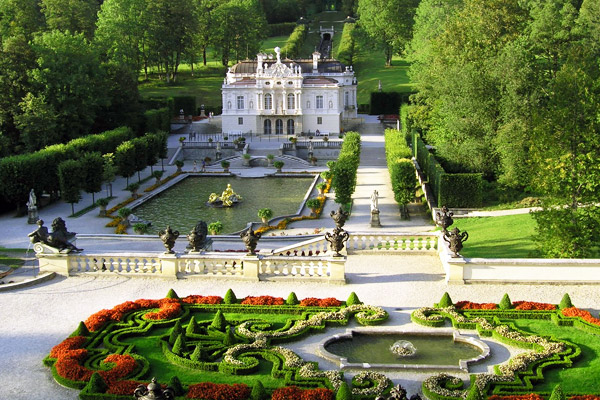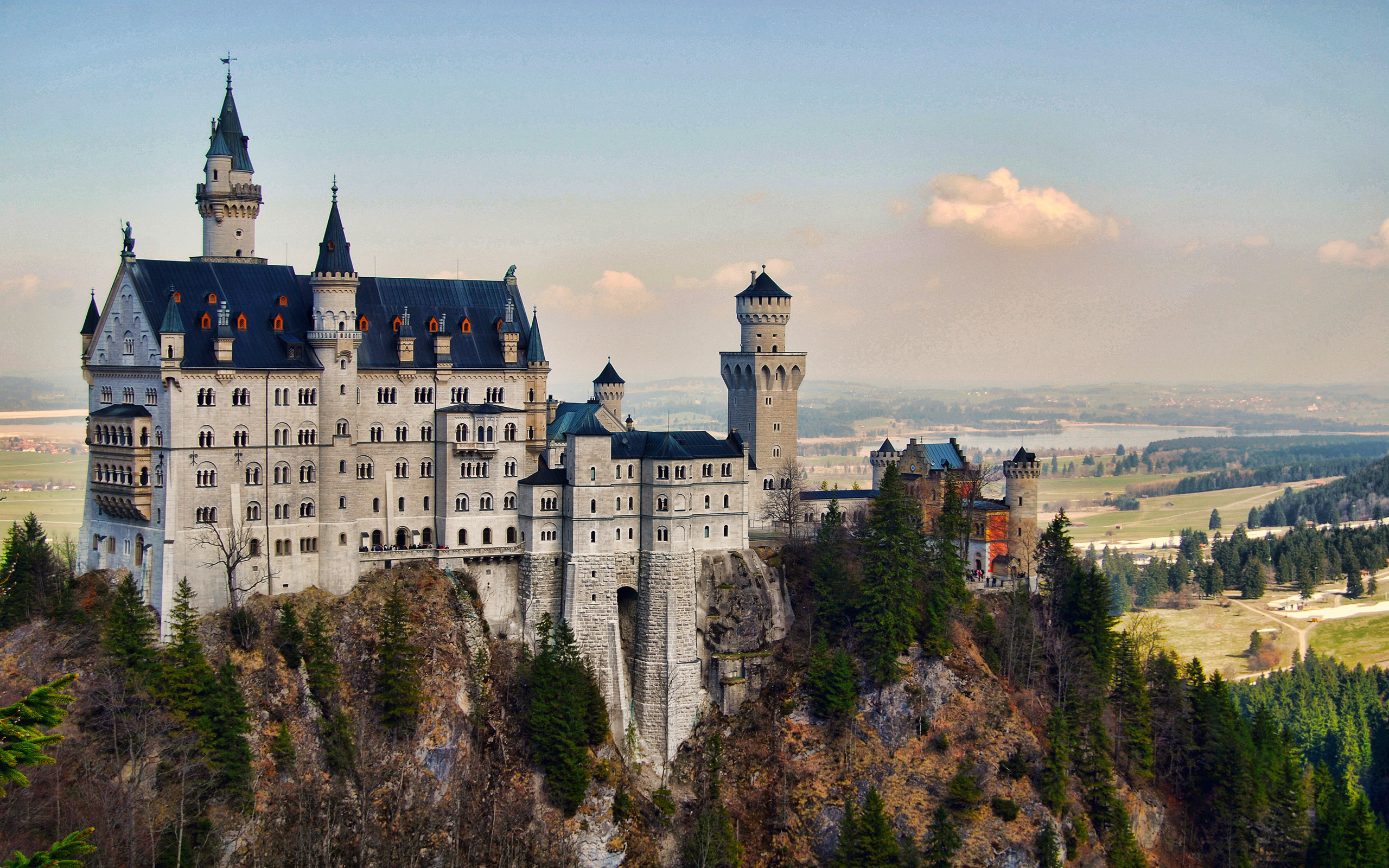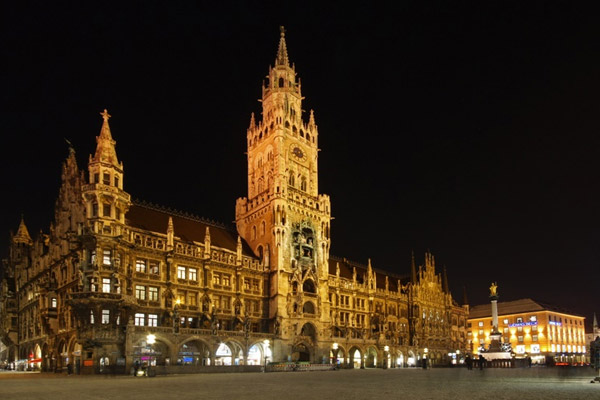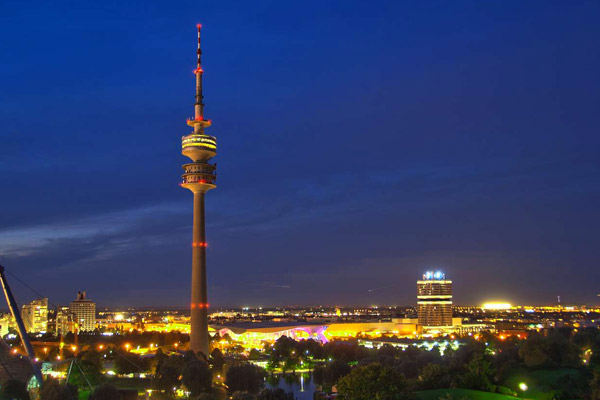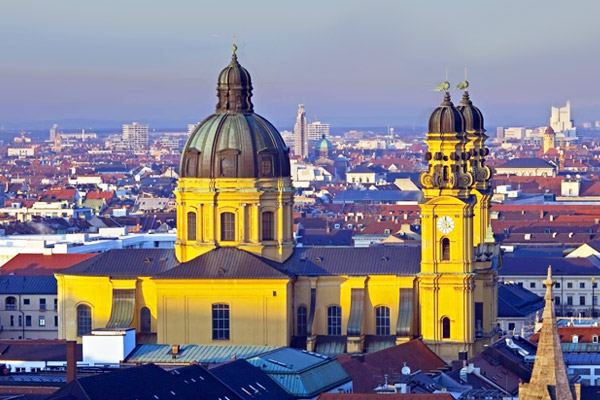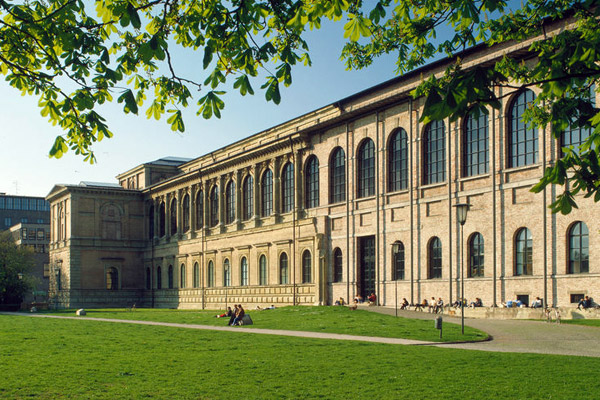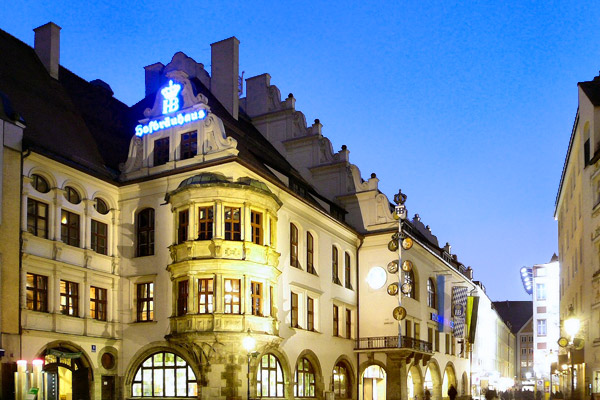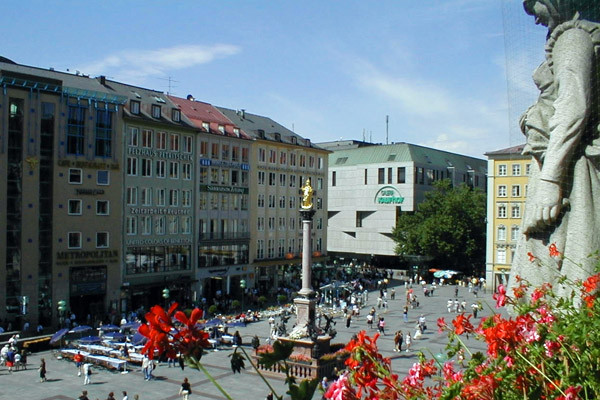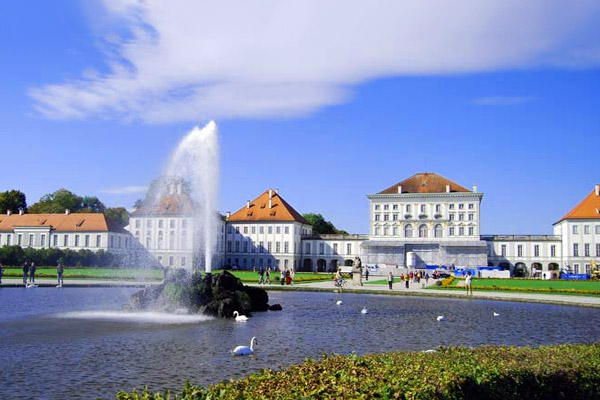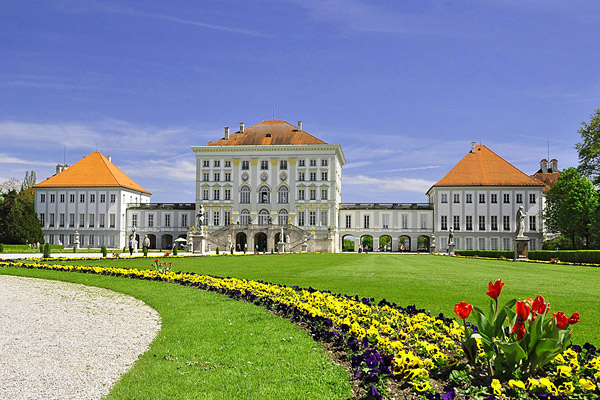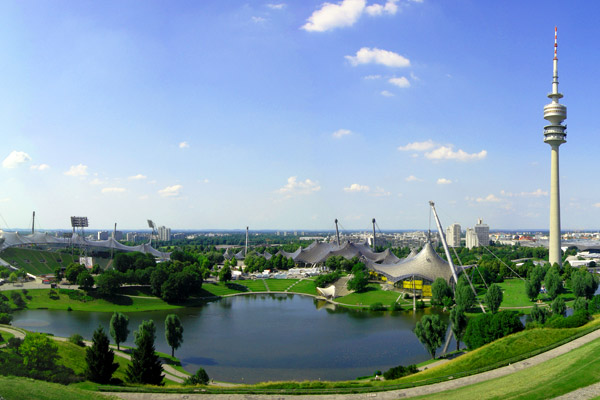Munich
Munich Likes You
General Information
Other Name: City of Monks, , State: Bavaria, Germany
Area: 310.43 km²
Languages Spoken: German,English and French
Long Distance Code: +49 89
Importance: Munich has significance as a financial centre (secondary to Frankfurt), being home of HypoVereinsbank and the Bayerische Landesbank. It outranks Frankfurt though as home of insurance companies like Allianz and Munich Re.
Best Time to Visit: May to September and October
International Access: Well connected with rest of the world.
Description
Munich is the capital city of Bavaria, the largest federal state of Germany (by area - not by population). The third-largest German city - by population, not by area - (after Berlin and Hamburg) , Munich is noted for its architecture and culture, and its annual Oktoberfest beer celebration is world famous.Location
Munich lies on the elevated plains of Upper Bavaria, about 50 km north of the northern edge of the Alps, at an altitude of about 520 m.Climate
Continental Weather
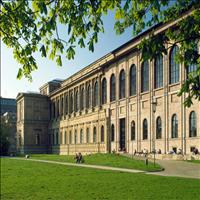 Munich's art museum houses one of the most important collections in Europe on two floors of a large neo-classical building. Nearly 1,000 paintings are on display featuring the work of the greatest European artists from the 14th to the 18th centuries. Highlights include works by Dutch and Flemish masters, as well as the Italian masters such as Botticelli and Titian. The gallery is massive, consisting of dozens of rooms, and requires a great deal of time to explore thoroughly.
Munich's art museum houses one of the most important collections in Europe on two floors of a large neo-classical building. Nearly 1,000 paintings are on display featuring the work of the greatest European artists from the 14th to the 18th centuries. Highlights include works by Dutch and Flemish masters, as well as the Italian masters such as Botticelli and Titian. The gallery is massive, consisting of dozens of rooms, and requires a great deal of time to explore thoroughly.
Address: Barerstrasse 27
Website: www.pinakothek.de
Telephone: (0)89 23805 216
Opening time: Tuesday to Sunday 10am to 6pm (Tuesday to 8pm)
Admission: €5.50 (including audio guide). Sundays €1, but audio guide is €4.50. Free for children under 18
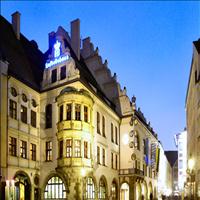 Beer has been swilled at this world-famous tavern site in the centre of Munich since it became a royal brewery in 1605. Equally famous is the Bavarian jollity and conviviality, known as 'gemuchtlikheid', which has emanated directly from the Hofbrauhaus in Munich along with the beer which flows freely there each day, served by robust rosy-cheeked young women clad in Bavarian dress in litre-sized beer steins. The cheerful atmosphere that reigns constantly in the establishment's different halls is helped along by the foot-tapping strains of traditional Bavarian 'oom-pah' bands and drinking songs. When the beer becomes too much, soak it up with a delicious salty pretzel or a German speciality from the menu, such as liver dumplings, potato soup or a variety of delicious sausages.
Beer has been swilled at this world-famous tavern site in the centre of Munich since it became a royal brewery in 1605. Equally famous is the Bavarian jollity and conviviality, known as 'gemuchtlikheid', which has emanated directly from the Hofbrauhaus in Munich along with the beer which flows freely there each day, served by robust rosy-cheeked young women clad in Bavarian dress in litre-sized beer steins. The cheerful atmosphere that reigns constantly in the establishment's different halls is helped along by the foot-tapping strains of traditional Bavarian 'oom-pah' bands and drinking songs. When the beer becomes too much, soak it up with a delicious salty pretzel or a German speciality from the menu, such as liver dumplings, potato soup or a variety of delicious sausages.
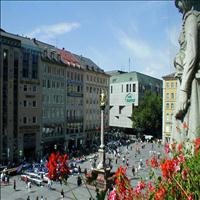 The Marienplatz is the heart of Munich and the site of its most important historic buildings. The square is dominated by the Neo-Gothic Town Hall featuring its famous Glockenspiel, both built in the 19th century. The Glockenspiel delights visitors when it chimes the hours every day at 11am, 12pm and 5pm with its 43 bells, accompanied by moving clockwork figures that display vignettes from Munich's history. The Town Hall has a tower that can be accessed by a lift. The centre of the square - which was once a vibrant farmer's market - features a statue of the Virgin Mary after which Marienplatz was named. Visitors can also explore a toy museum in the Old Town Hall on the square, and the Frauenkirche, Munich's cathedral, dating from the 15th century
The Marienplatz is the heart of Munich and the site of its most important historic buildings. The square is dominated by the Neo-Gothic Town Hall featuring its famous Glockenspiel, both built in the 19th century. The Glockenspiel delights visitors when it chimes the hours every day at 11am, 12pm and 5pm with its 43 bells, accompanied by moving clockwork figures that display vignettes from Munich's history. The Town Hall has a tower that can be accessed by a lift. The centre of the square - which was once a vibrant farmer's market - features a statue of the Virgin Mary after which Marienplatz was named. Visitors can also explore a toy museum in the Old Town Hall on the square, and the Frauenkirche, Munich's cathedral, dating from the 15th century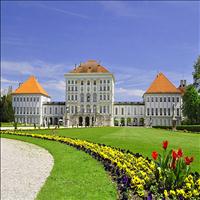 About five miles (8km) from the city centre, accessible by tram and bus, is the interesting Schloss Nymphenburg, originally a summer home for the Munich aristocracy. The palace has been expanded, altered and fitted with various eccentricities by succeeding owners over the centuries since building began on it in 1664. Today it is a delight for tourists who revel in exploring the villa and grounds. Inside there are some interesting frescoes in the main hall. An arcaded gallery features a collection of 36 provocative paintings ordered by King Ludwig I showing the most beautiful women of his day. The surrounding park has some surprises too, with some interesting pavilions hidden among the English-style gardens. There are also collections of Ludwig's elaborate coaches on display, and a porcelain museum.
About five miles (8km) from the city centre, accessible by tram and bus, is the interesting Schloss Nymphenburg, originally a summer home for the Munich aristocracy. The palace has been expanded, altered and fitted with various eccentricities by succeeding owners over the centuries since building began on it in 1664. Today it is a delight for tourists who revel in exploring the villa and grounds. Inside there are some interesting frescoes in the main hall. An arcaded gallery features a collection of 36 provocative paintings ordered by King Ludwig I showing the most beautiful women of his day. The surrounding park has some surprises too, with some interesting pavilions hidden among the English-style gardens. There are also collections of Ludwig's elaborate coaches on display, and a porcelain museum.
Address: Eingang 19
Post code: (0)89 179 08-0
Website: www.schloesser.bayern.de/englisch/palace/index.htm
Transport: Bus 51 or tram 17
Opening time: Daily 10am to 4pm (mid-October to March), and 9am to 6pm (April to mid-October)
Admission: €5; Combination ticket: €10. Concessions available
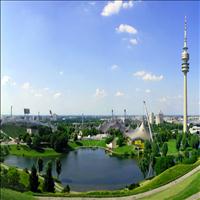 Munich's massive Olympic park complex was constructed for the 20th Olympic Games in 1972, but remains a marvel of modern engineering. Its main stadium is a like a massive tent, which can seat close on 70,000 spectators, topped by the largest roof in the world, extending for 720,000 square feet (66,890 sq metres) and made of tinted acrylic glass. The roof collects rainwater which is used to fill the adjacent Olympic lake. Tent roof tours (with or without an abseiling option) are on offer. Visitors to the site can enjoy a spectacular view from the revolving restaurant and observation terrace which tops the 950-foot (290m) high Olympic Tower. Near the tower is the BMW Museum, which displays the history of Germany's famous automobile manufacturer. Far from being a remarkable 'white elephant', the park is still in constant use as a lively leisure and recreational centre for the city; on more than 200 days of the year it is the venue for rock and pop concerts, sports events, exhibitions and trade fairs.
Munich's massive Olympic park complex was constructed for the 20th Olympic Games in 1972, but remains a marvel of modern engineering. Its main stadium is a like a massive tent, which can seat close on 70,000 spectators, topped by the largest roof in the world, extending for 720,000 square feet (66,890 sq metres) and made of tinted acrylic glass. The roof collects rainwater which is used to fill the adjacent Olympic lake. Tent roof tours (with or without an abseiling option) are on offer. Visitors to the site can enjoy a spectacular view from the revolving restaurant and observation terrace which tops the 950-foot (290m) high Olympic Tower. Near the tower is the BMW Museum, which displays the history of Germany's famous automobile manufacturer. Far from being a remarkable 'white elephant', the park is still in constant use as a lively leisure and recreational centre for the city; on more than 200 days of the year it is the venue for rock and pop concerts, sports events, exhibitions and trade fairs.
Address: Spiridon-Louis-Ring 21
Website: www.olympiapark-muenchen.de
Telephone: (0)89 30 67-0
Opening time: The tower is open daily 9am to midnight
Admission: Tower: €4.50 (adults), €2.80 (children 6-16); other concessions available

